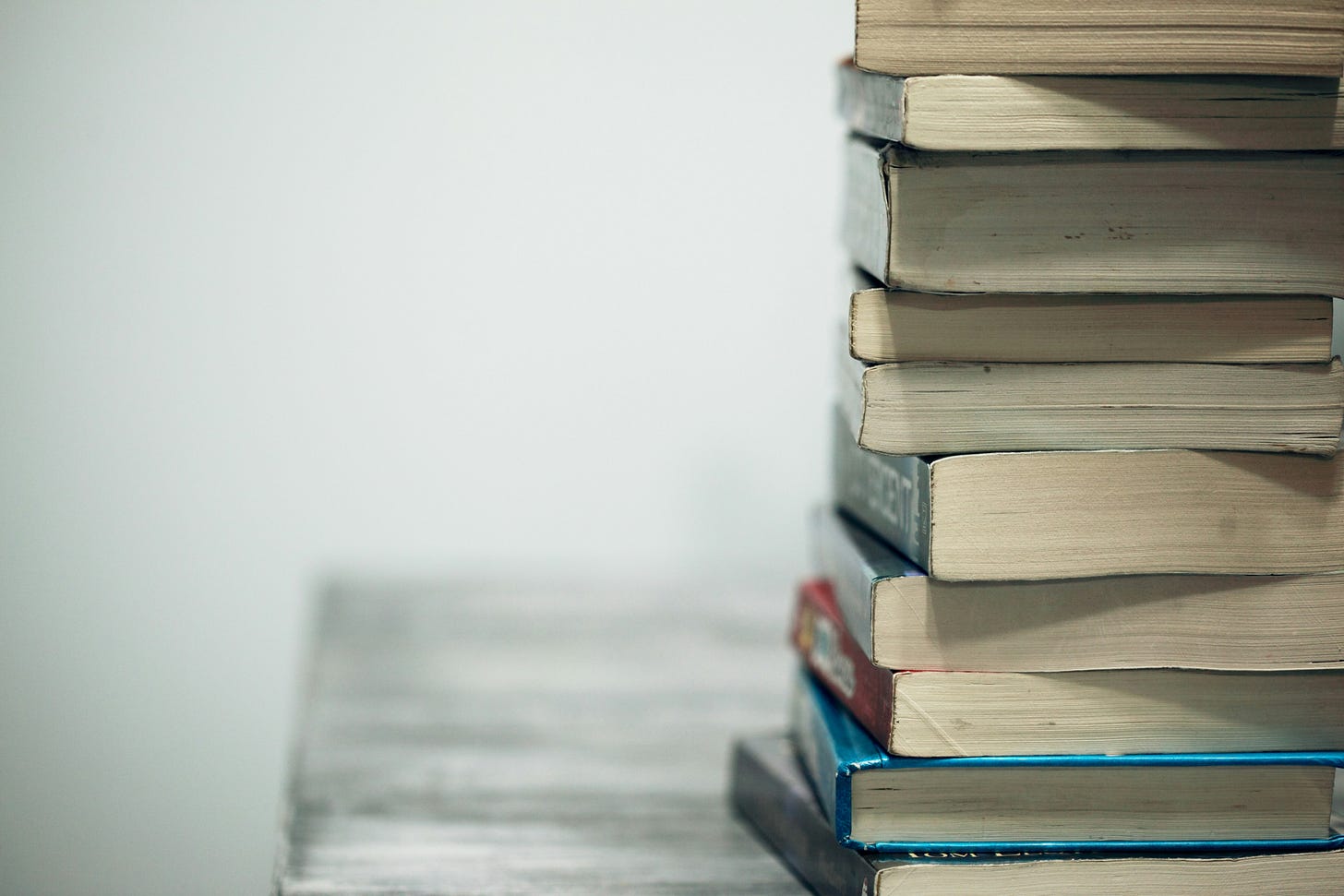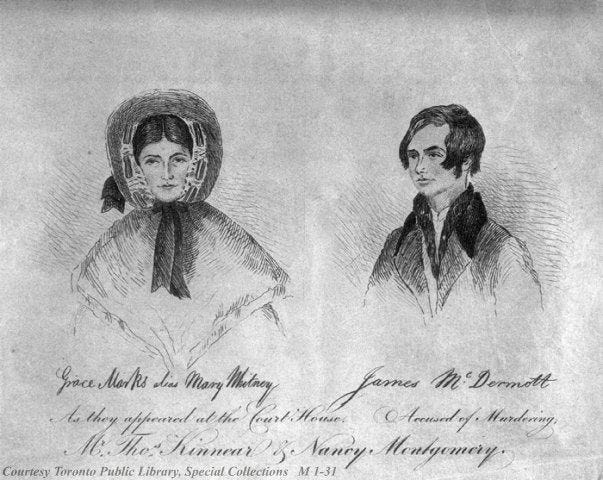My husband and I are making our way through this year’s Oscar contenders for Best Picture, adding on for good measure the few extra films nominated for Best Actor/Actress and Best Supporting Actor/Actress, plus the Best Screenplays, both Original and Adapted. That’s a good, solid list of about 15 films, which we’re trying to watch before March 10th. So, I guess I’m in kind of a “best of” mood.
I’m not big on ranking books. When people ask, as they occasionally do, what my favorite book is, I never answer directly. But I do have a working list of my top ten. Sharing them with you feels weirdly revealing because it says quite a bit about me as a reader. Nevertheless, here they are, in alphabetical order by author’s last name because asking me to rank them in order of preference would be asking too much.
Little Women, by Louisa May Alcott
So many women love Little Women. I am shameless among them. Little Women is often accused of being sentimental, but when I returned to it for the third or fourth time recently, I was surprised all over again by its honesty. Alcott wasn’t afraid to talk about anger or jealousy—emotions women weren’t supposed to express then, or now. She’s also frank about all the things not to like about being a woman. Again, wow, how did she even get away with that? She’s also a skilled storyteller. What I had recalled as episodic, I relearned was actually a story that holds together as a whole, complete with suspense and satisfying dénouement. (And, since we’re talking Oscars, if you haven’t seen Greta Gerwig’s adaptation, stream it now!)
Alias Grace, by Margaret Atwood
I’ve enjoyed several of Margaret Atwood’s novels (especially The Blind Assassin and, of course, The Handmaid’s Tale), but this one is my favorite. I love well-written historical fiction, and this story is based on the historic trial of a woman accused of murdering her employer and his housekeeper. I haven’t read Alias Grace in a really long time, so I should probably revisit it and see whether it stands up to my recollection of it.
from the historic Trial Pamphlet (1843), Grace Marks (left) sketched with James McDermott (right)
Possession, by A.S. Byatt
Possession offers a historical element, too, but with a modern story line running alongside it. Usually, I find that device doesn’t work, but Byatt is both smart and clever. And she writes beautiful sentences. Also, there’s a tantalizing element of mystery and sleuthing to this story. It’s subtitled “a romance,” which it means in the literal sense of the Merriam Webster definition:
(1) a medieval tale based on legend, chivalric love and adventure, or the supernatural
(2) a prose narrative treating imaginary characters involved in events remote in time or place and usually heroic, adventurous, or mysterious
(3) a love story especially in the form of a novel
Well, it’s not literally medieval. But otherwise, it covers all of the bases above. I don’t want to spoil the fun by saying much more. Except: Do not waste your time watching the Gwyneth Paltrow movie.
The Complete Poems of Emily Dickinson (edited by Thomas H. Johnson)
Dickinson is the most brilliant American poet, period—a truly original thinker whose diction and form are equally quirky in the best possible way. She’s not easy to read, but she will provide you with a lifetime of deep questions and insights if you spend some time with her. For that reason, this is one of the books I would want to have with me if I were stranded on a deserted island (which I sure hope never happens).
Middlemarch, by George Eliot
I grew up in a small town, so maybe that’s one reason I love Middlemarch—all those interconnected, interesting stories. Middlemarch is a big, sweeping novel that somehow manages to (mostly) hold together. I appreciate that it undermines the usual love-and-romance conventions. Someone once said (maybe it was George Eliot herself?) that it’s more about marriage than about love. I think I’ve read it three times, and it never disappoints me.
George Eliot by François D’Albert Durade, National Portrait Gallery
Tess of the D’Urbervilles, by Thomas Hardy
I reread Tess last year and was bowled over by it just as I had been the first time. Tess is such a sympathetic character, Hardy’s language is so beautiful, and best of all, he actually gets women. Several times in this most recent reading, I had to pause and give him a literal shout-out for getting it right. Plus, he knows how to build suspense. His scene of threshing day in the field made me want to leap out of my skin, I was so tense reading it. Go, Tom!
The History of Love, by Nicole Krauss
I loved this novel when I first read it. Then I taught it twice. The true test of whether a novel really is great is teaching it, because most books simply can’t hold up to classroom scrutiny. They may be entertaining, but you’ll find out whether they have enough depth when you try teaching them. The History of Love passed that test, and many of my students liked it, too. Again, there’s an element of history here, plus characters you grow to love, a little bit of a mystery, and some clever sleight of hand by Krauss.
Beloved, by Toni Morrison
Beloved was named the best American novel of the late 20th century by The New York Times Book Review for good reason. Morrison takes on the most brutal traumas of slavery in a dreamy, shape-shifting way that somehow drives them home more effectively than any straight historical account could. She was a genius.
Walden, by Henry David Thoreau
I have had a soft spot in my heart for Thoreau ever since I read Walden at exactly the right time, during my sophomore year of college. He is tuned into the natural world and writes about it in ways both inspirational and precise. At the same time, he has a lot to say about people and society that remains relevant today. I’m a little bit in love with him.
photo of Walden Pond by Erik Granlund, Wikimedia Commons
What? That’s only nine? Well, I’d hate to add a tenth because then the next time I read a great book, I’d have to kick another one off. Of course, nobody says there have to be just ten. But I like the idea of leaving that last slot open for the anticipation it suggests. I may read another top ten book any day now. At least, one can always hope.
If you make your own top ten list, note what it says about you. I see in my list a leaning toward slow, luxurious storytelling and psychological nuance and history, not to mention the fact that I’m much more interested in women’s stories than men’s.
So many other books are lingering close around the edges of my list. I’m thinking about Edward P. Jones’s The Known World and Lily King’s Euphoria and Andrea Barrett’s Servants of the Map, for starters. And I can take a pretty good guess at some of the writers that will be on your own lists: Tolkien, Austen, Fitzgerald, L’Engle, Dickens, Vonnegut… But I’ll ask the question anyway: What books are in your current top ten?








We have some overlap! Little Women, for sure, and Possession is up there for me. Jane Eyre and Wuthering Heights are shoo-ins for me. I need to make an updated list... I know Demon Copperhead got added on last year though!
I love the idea of leaving a spot open, Kathy. I remember hearing Nicole Krauss read Seeing Ershadi and I was blown away. I enjoyed her Forest Dark and will check out History of Love.